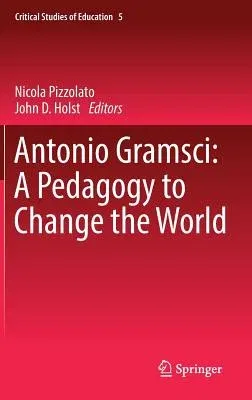This volume provides evidence for the argument of a central place of
pedagogy in the interpretation of Gramsci's political theory. Gramsci's
view that 'every relationship of hegemony is necessarily a pedagogical
relationship' makes it imperative to dismiss narrow and formal
interpretations of his educational theories as applying to schooling
only. This book argues that what is required rather is an inquiry into
the Italian thinker's broad conceptualisation of pedagogy, which he
thought of as a quintessential political activity, central to
understanding and transforming society.
Preceded by a broad introduction that positions Gramsci in his context
and in the literature, the essays in this book critically revisit the
many passages of the Prison Notebooks and pre-prison writings where
Gramsci addresses the nexus between politics and pedagogy. Some essays
apply those concepts to specific contexts. The book for the first time
brings to the attention of an English-speaking audience voices from the
current historiography in Italy and Latin America.
*We are forced at regular intervals to consider how Gramsci might still
be useful, in particular national territories, in an international
context. How can we carry on with pessimism of the intelligence, but
find some basis for optimism of the will?
*
From the foreword of Anne Showstack Sassoon, Visiting Professor of
Politics at the Department of Politics at Birbeck, University of London

